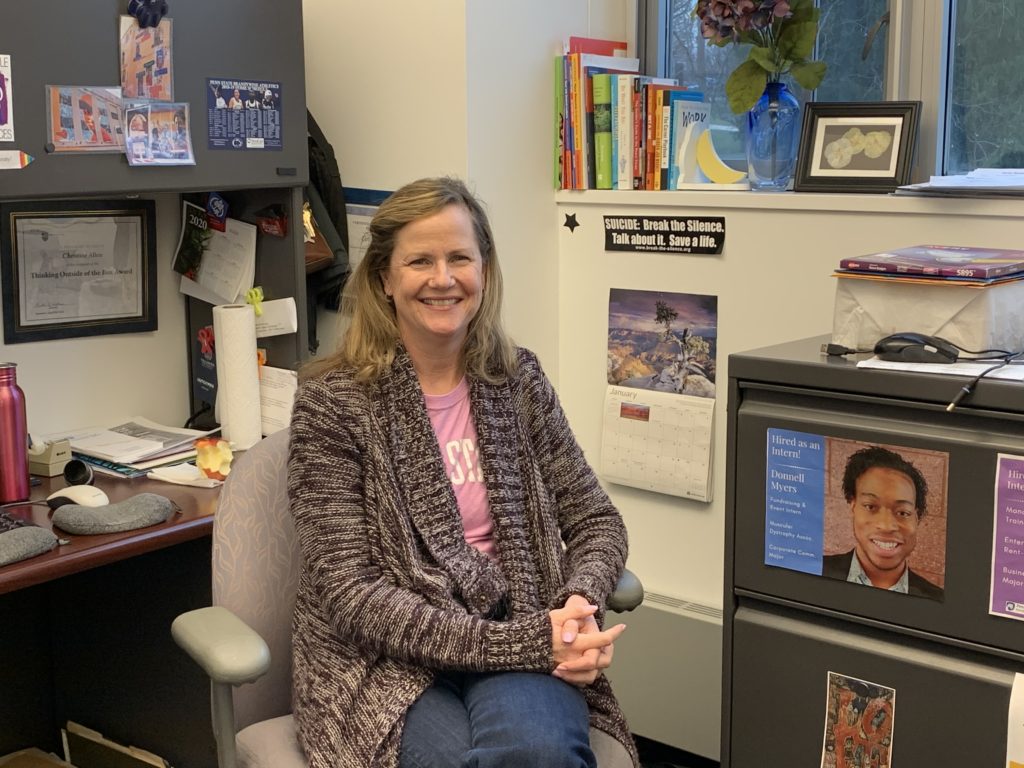Sophia Keller, Lion’s Eye Staff Writer, sxk1036@psu.edu
Penn State Brandywine’s Career Services department is one of the first places students can visit in order to learn more about internship opportunities offered by small and corporate businesses or by the school itself.
Brandywine provides its students with one-on-one help from career service coordinators, like Christine Allen, and internship classes taught by Associate Professor of English Elizabeth Womack and Lecturer in Human Development and Family Studies Michael Sturm, in order to prepare students for their future career.
According to the National Association of Colleges and Employers (NACE), 57.5% of graduating students who completed one or more internships received multiple job offers. Students with internships on their resumes are more likely to receive a job offer over students who have no internship experience.
Students shouldn’t waste time applying for internships, either. We asked Christine Allen, career services coordinator, if sophomore year was the best time to begin the application process and she said, “…it is possible to get hired younger, you may not get exactly the type of position that you want, but if you can get at least two experiences that would be ideal.”
Allen detailed that the career services department provides students with a database of former student’s internships, where they worked, who they worked for, and what the experience was like.
Students seeking help from career services personnel are provided with tools such as mock interviews, networking opportunities, and meetings with previous interns. As an example, Allen suggested coming prepared with questions to ask your future employer, no matter how trivial, shows dedication and interest in the internship.
Besides the career services department, Brandywine offers classes strictly dedicated to internships. Michael J. Sturm, an internship coordinator for Human Development and Family Studies, explained the classes primarily help students create resumes, and often students struggle to find relevant information to include. Sturm also stated that references should not be included on your resume, but in a separate file. Only provide references when the employer asks.
The classes also help create targeted portfolios and teach career readiness skills, like teamwork, collaboration, taking initiative and observing your surroundings. Students never want to end up in a situation where they’re forced to ask the employer what needs to be done.
As an English professor and teacher of one of these internship courses, Womack said you should know to have questions prepared, “One of the most important parts of preparing for an interview is knowing that they will ask you if you have any questions. Although it seems like a friendly offer, it’s really their opportunity to see how much work you have done to do research on the company.”
When asked whether or not students should apply for internships only focused on their major, Womack said, “I think students should pursue internships that they find interesting. You’re not an expert, yet, so I think it’s good to sample broadly but not indiscriminately.”
Womack believes portfolios should only include work that you feel proud of, something you are excited to show employers. That they should also be reader friendly, and highlight your skills set. Generally, apply for an internship if it sounds interesting or cool to you. You can work in many different environments before you decide what you’d like to do for a career.
